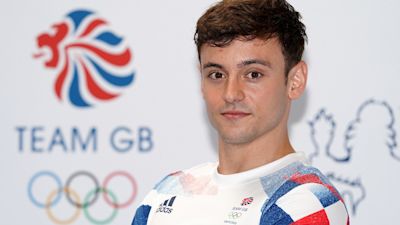Olympic champion Tom Daley appeals for funding to support ‘groundbreaking’ brain tumour drug trial

Olympic champion Tom Daley has added his voice to promote a “groundbreaking” trial of a cannabis-based drug for the treatment of an aggressive form of cancer.
The gold medal winning diver, whose father Robert died aged 40 from a brain tumour in 2011, joined a call for donations to fund the trial.
The Brain Tumour Charity launched an appeal to help raise £450,000 needed to fund the new three-year trial, which is due to begin recruiting some 232 patients at 15 hospitals across the UK early next year.
In a video to promote the trial, Daley said: “We are reaching out to all you individual heroes and supporters, to help fund this groundbreaking trial.
“When you donate, you’ll receive a link for your social media badge of honour. Join our community, spread the word and help us pave the way to beating brain tumours”.
The study, led by an expert at the University of Leeds and co-ordinated by the Cancer Research UK Clinical Trials Unit at the University of Birmingham, will look at whether adding Sativex – an oral spray containing cannabinoids – to chemotherapy could extend life for people diagnosed with a recurrent glioblastoma, or delay the progression of their disease.
Researchers said the condition, which is the most common and most aggressive form of brain cancer with around 2,200 people diagnosed each year in England alone, currently has an average survival of less than 10 months.
If the trial proves successful, they hope it could represent one of the first additions to NHS treatment for glioblastoma patients in more than a decade.
Daley, who was seen practicing one of his hobbies, knitting, while watching the Women's 3m Springboard Final at the Tokyo Aquatics Centre on Sunday, has been advocating and campaigning in support of the Brain Tumour Charity since the loss of his father.
He recently raffled off one of his knits, raising £5,787 for the charity in 14 days.
Susan Short, professor of clinical oncology and neuro-oncology at the University of Leeds, said: “It’s really exciting that we’re now at the point where we can run a definitive, well-designed study that will tell us the answer to whether these agents could help treat the most aggressive form of brain tumour.
“Having recently shown that a specific cannabinoid combination given by oral spray could be safely added to temozolomide chemotherapy, we’re really excited to build on these findings to assess whether this drug could help glioblastoma patients live longer in a major randomised trial”.
Dr David Jenkinson, interim chief executive at the Brain Tumour Charity, said: “We hope this trial could pave the way for a long-awaited new lifeline that could help offer glioblastoma patients precious extra months to live and make memories with their loved ones.
“With so few treatments available and average survival still so heartbreakingly short, thousands affected by a glioblastoma in the UK each year are in urgent need of new options and new hope”.